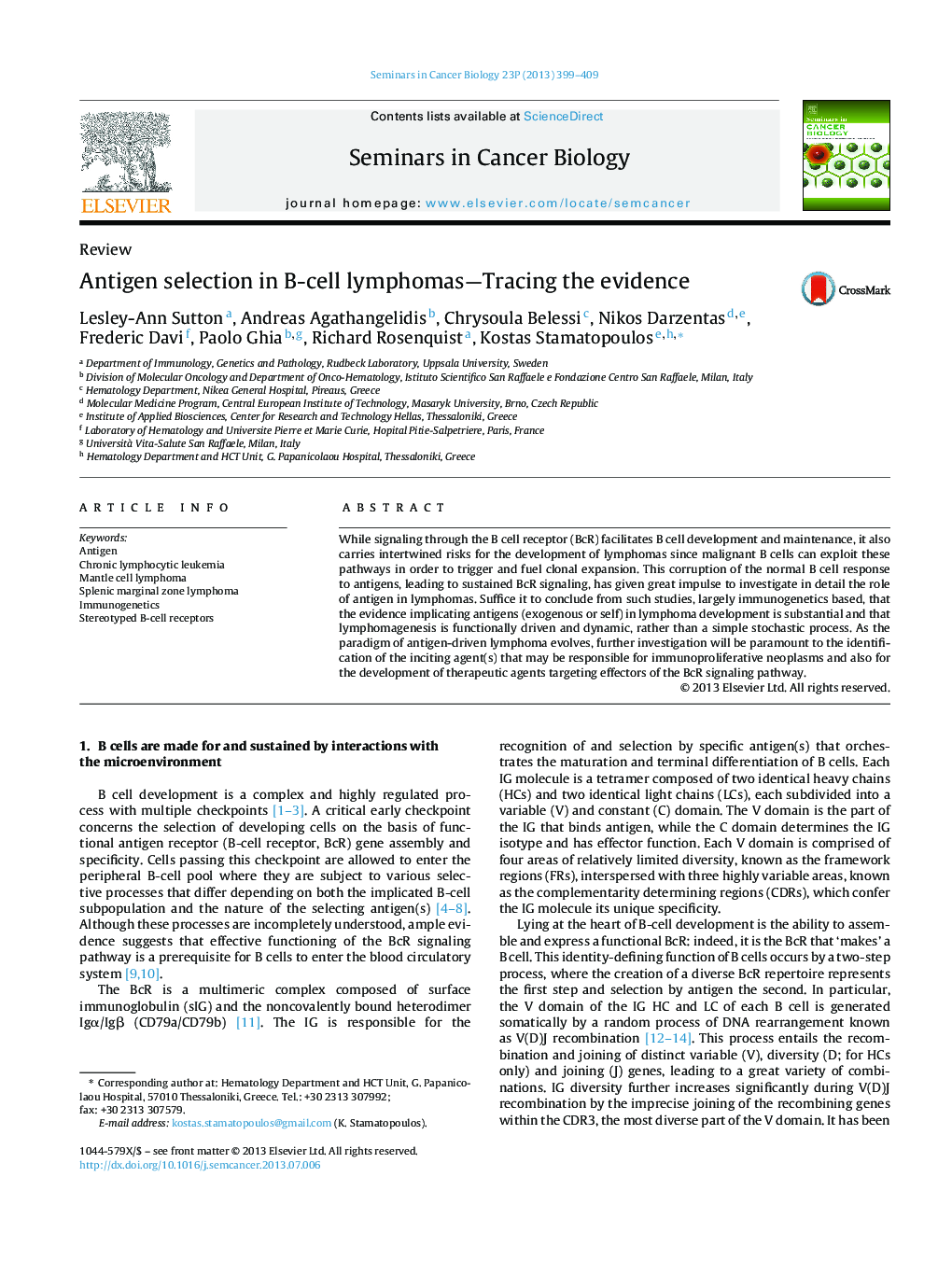| Article ID | Journal | Published Year | Pages | File Type |
|---|---|---|---|---|
| 2023676 | Seminars in Cancer Biology | 2013 | 11 Pages |
While signaling through the B cell receptor (BcR) facilitates B cell development and maintenance, it also carries intertwined risks for the development of lymphomas since malignant B cells can exploit these pathways in order to trigger and fuel clonal expansion. This corruption of the normal B cell response to antigens, leading to sustained BcR signaling, has given great impulse to investigate in detail the role of antigen in lymphomas. Suffice it to conclude from such studies, largely immunogenetics based, that the evidence implicating antigens (exogenous or self) in lymphoma development is substantial and that lymphomagenesis is functionally driven and dynamic, rather than a simple stochastic process. As the paradigm of antigen-driven lymphoma evolves, further investigation will be paramount to the identification of the inciting agent(s) that may be responsible for immunoproliferative neoplasms and also for the development of therapeutic agents targeting effectors of the BcR signaling pathway.
